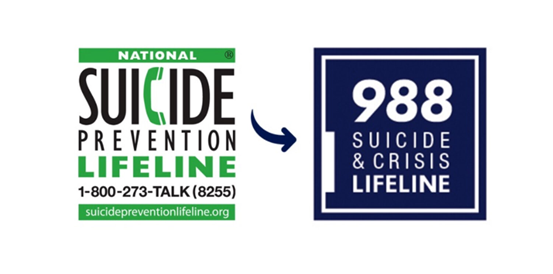World Suicide Prevention Day
On this day we commemorate the ones we’ve lost, September 10th marks World Suicide Prevention Day. What is suicide, you may ask? The most accurate and simple answer would be when someone ends their own life due to stress, depression, anxiety, or other factors. On this day, we raise awareness on the growing problem of suicide. People need to be aware that suicide is not the answer because it does not only affect them but the people who love and care about them as well. Suicide may be preventable if people notice or help someone with suicidal tendences. How can you help? Be there for them, just talking or being part of this person’s life may make their day, it doesn’t have to be face to face it could be just by calling them. Following up with them, just a simple text message can make someone’s day. Suicide is not inevitable for anyone, just by talking, making jokes, hugging them, or providing support can help those who need it. In 2021, the Centers for Disease Control and Prevention (CDC) published statistics that show how common suicide is in the USA. The article shows that is the 11th cause of dead. In that year. The CDC estimated that in 2021 around 1.7 million Americans took their lives, that is around 132 suicides per day. The study also shows that firearms are the most common method of death by suicide, accounting for 54.64% of the deaths that year. Other common ways of suicide are suffocation (hangings) accounting for 25.80%, and poison and drug overdose with 11.56%.
These are some factors that can lead to suicide:
1. Bullying
2. Illness
3. Chronic pain
4. Eating disorders
5. Job and financial problems
6. Relationships
7. Stress
8. Depression
9. Anxiety
10. Substance use
Anyone you know can be suffering from feelings of suicidal thoughts and you may not realize it, that is why we need to be conscious of the signs and be wary of how we talk and treat the people that surround us. Not everybody sees, hears, and feels the same. You may be able to help prevent the suicide of someone who is close to you or even a stranger. Sometimes just the random act of kindness in their life can make a huge difference. Checking up on people who show signs of depression to see how they are doing and seeing if they are ok can be helpful as well to help someone who is thinking about taking their life. Noticing the signs and changes in their behavior is key.
These are some signs of depression:
1. Hopeless outlook- feeling worthless and hopelessness.
2. Loss of interest- is a withdrawal of activities you love or enjoy doing like sports, hobbies going out to family and friend’s activities.
3. Sleep problems- feeling very tired can cause people who suffer from depression to stop doing things so they can sleep instead. This is a lack of energy; many can suffer from insomnia instead.
4. Anxiety- this is the common factor for depression because they happen at the same time. Some anxiety symptoms can be nervousness, tension and trouble focusing.
5. Changes in appetite and weight- this can fluctuate because is different for everybody, some may want to eat more, and some don’t want to eat at all.
6. Uncontrollable emotions- this is the most common sign some may show an outburst of anger and others will cry uncontrollably. It will depend on the mood signs the person has.
International Seafarers’ Welfare and Assistance Network (ISWAN) this association works to support the seafarer’s welfare around the world. ISWAN works to provide good facilities and services for seafarers in ports and ships all around the world. In the ISWAN website you may find, an article called “Mentally healthy ships” in which you may find how big are mental health problems and depression on ships. This article shows that mental health problems are very common among seafarers and it’s not a primary concern for companies. Seafaring does not make you mentally unwell, but it can be caused by other factors while working at sea for a long period of time. According to this study a company with high levels of stress can lead to mental health problems and disappearances at sea. The ITF Seafarers’ Trust and Yale University Seafarers Mental Health study shows statistics of a study made with seafarers to see how common mental health problems at sea are. Seafarers that have anxiety and depression are more likely to start developing symptoms by an injury caused while working at sea years before. A 28% screened positive for anxiety and depression, 35% of the seafarers never asked for help, 20% in this study show suicidal intentions, these come from a non-caring company and low job satisfaction. If you are a seafarers and you are in need for help or talk to someone you can call the ISWAN hotline at any time +44 (0)300 012 4279, and their live chat via www.seafarerhelp.org or visit their website https://www.seafarerswelfare.org/contact-us , they will get you the help you need. If you are ever thinking about suicide, you can call the Suicide Prevention Lifeline. This hotline works 7 days a week 24 hours a day, they can help. For more information, call 1-800-273-8255 or visit their website suicidepreventionlifeline.org.
References:
https://www.paho.org/en/topics/suicide-prevention
https://afsp.org/suicide-statistics/
https://www.cdc.gov/suicide/factors/index.html
https://www.healthline.com/health/depression/recognizing-symptoms#hopelessness


